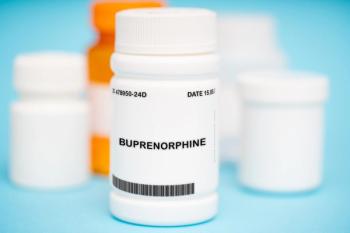
R.Ph. provider status bill introduced in Senate
R.Ph. provider status bill introduced in Senate
GOVERNMENT and LAW
R.Ph. provider status bill introduced in Senate
Brian Kaatz didn't have an agenda when he started a six-month sabbatical on the staff of Sen. Tim Johnson (D, S.D.), but pharmacists should be glad he had some ideas.
Kaatz, head of the clinical pharmacy department at South Dakota State University College of Pharmacy, talked to Johnson and his aides frequently about what pharmacists can do to help elderly patients on complex medication regimens. He also told them about the barriers, such as Medicare's refusal to recognize pharmacists as "healthcare providers." That lack of statusa problem that physician assistants, nurse practitioners, and clinical social workers, among others, don't have to deal withmakes it very difficult for pharmacists to be paid by Medicare.
But that would change under S. 974, a bill Johnson introduced late last month. If enacted, it would add pharmacists to the list of healthcare providers. They could bill Medicare for providing "pharmacists services" such as drug therapy management or immunizations and anything else their state practice act authorizes them to perform.
The secretary of Health & Human Services, with input from "national organizations representing pharmacists and pharmacies," would develop a relative value scale and fee schedule based on time, the level of risk associated with the drugs, and the health status of the patient. Until that is finished, the pay would be equal to 80% of what a physician would receive for doing the same job.
"I really did not go there with one or two issues I wanted to carry the day on," Kaatz told Drug Topics. "It wouldn't be fair to them. Clearly, this issue of pharmacist provider status was something I wanted to talk to them about. Whether or not legislation came about was not necessarily a goal when I went there."
But the American College of Clinical Pharmacy and ASHP are especially glad Kaatz addressed the issue. They formed the Pharmacists Provider Coalition and worked closely with Johnson and his staff to translate a long-discussed goal into legislation. That step alone, a major coup for ACCP and ASHP, elevated the issue from a debate among pharmacists to consideration by legislators and policymakers.
"Pharmacists are critical in ensuring safer and more effective medication use by our nation's seniors," said Johnson in a Senate speech May 25. "In addition to the important and continuing responsibility for ensuring accurate, safe medication dispensing, compounding, and counseling, pharmacists now provide a much more comprehensive range of clinical, consultative, and educational services."
Ed Webb, director of government affairs for ACCP, said he expected the legislation would spur the 20 states that haven't expanded their practice acts to authorize pharmacists to take on tasks beyond dispensing. He explained that the bill is aimed at "time- and resource-intensive, nonroutine" functions.
"This is 'pharmacist spends an hour with the patient twice a year' kind of stuff," said Webb. "It would be a mistake for us to get into the kind of wish list of all the little pieces of the dispensing process and turn them into billable minutes or hours for Medicare. I don't think that's the way to go."
Michael F. Conlan
Mike Conlan. R.Ph. provider status bill introduced in Senate.
Drug Topics
2001;11:30.
Newsletter
Pharmacy practice is always changing. Stay ahead of the curve with the Drug Topics newsletter and get the latest drug information, industry trends, and patient care tips.























